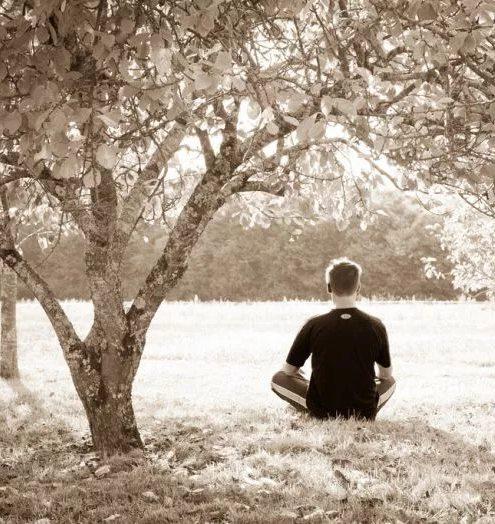How Observation Changes Relationships

IMAGE OF THE WEEK

When we sit in silence what do we do? We sit and observe the voluntary and involuntary activities of the body and mind. Slowly the voluntary activities come to an end, but the involuntary activities we have inherited from birth, from our family, religion, race, nationality -which fill the mind – go on, and we sit and observe their unfoldment.
Since we are used to working all the time we may find it difficult at first to sit quiet, or the body may fall asleep due to accumulated fatigue. If it happens it is desirable to rest the body for a few days until it is fresh again. While you sit in silence, thoughts will arise, as the mind has been working for 24 hours. The thoughts cannot be suppressed nor can they be thrown away anywhere, you can only watch them, not naming them as good or bad. Then you are free from the roles of an experiencer and an actor, you enter into the state of an observer of non-reactional attention.
As soon as the mind begins moving and says: “I like” or “I dislike” what it sees, there is a disturbance, a burdening of the mind and the role of the observer is lost and you are once more immersed into the roles of an experiencer and actor. If you do not react to the thoughts you are observing, if they no longer have the power to elicit any reaction from you then they will subside of their own accord.
We have to extend this attitude of observation in relationships. Once the observer state is awakened it changes relationships. It is a tremendous energy that is awakened. When observation becomes a continuous state throughout the day, then:
(1) There is no self-deception. We do not hide anything from ourselves. There is nothing left as subconscious or unconscious it being all revealed in observation. There is now only the conscious level.
(2) We stop deceiving others or presenting a different image of ourselves to others. The seeing of what is, without justification or condemnation shatters the image. We now have the courage to live and be what we are.
(3) We become aware of all that is happening within us, of the different emotions arising within us, for example, if we begin to get angry we are aware of it and so the grip of anger loosens its hold over us.
(4) We recognize and admit our mistakes; asking for forgiveness immediately, thus freeing the mind from the burden of residue.
(5) Through observation thoughts subside, hence the strain and pressure they cause on the neurological and chemical systems are also lifted. It is this tension that brings about anti-social behavior.
(6) Pain and pleasure are not taken further than the present moment; thus no grudges or attachments are formed. The art of living is to live completely in the moment, not carrying any residue over to next incident, person or day.
by Vimala Thakar, sourced from here.
SEED QUESTIONS FOR REFLECTION: How do you relate to the notion of not carrying any residue over into the next experience? Can you share a personal story of a time your commitment to observation changed your relationship? How do you practice observation while staying checked in?